In just a few short years, Giti Tire has become a flagship success story for the I-77 Corridor, leveraging a $560 million investment into an enterprise notable for its business, community and environmental sustainability.
The Singapore-based company’s first U.S. plant was a greenfield project that now houses a 1.7-million square foot factory that began production in late 2017 and is on track to produce more than 3.5 million tires this year.
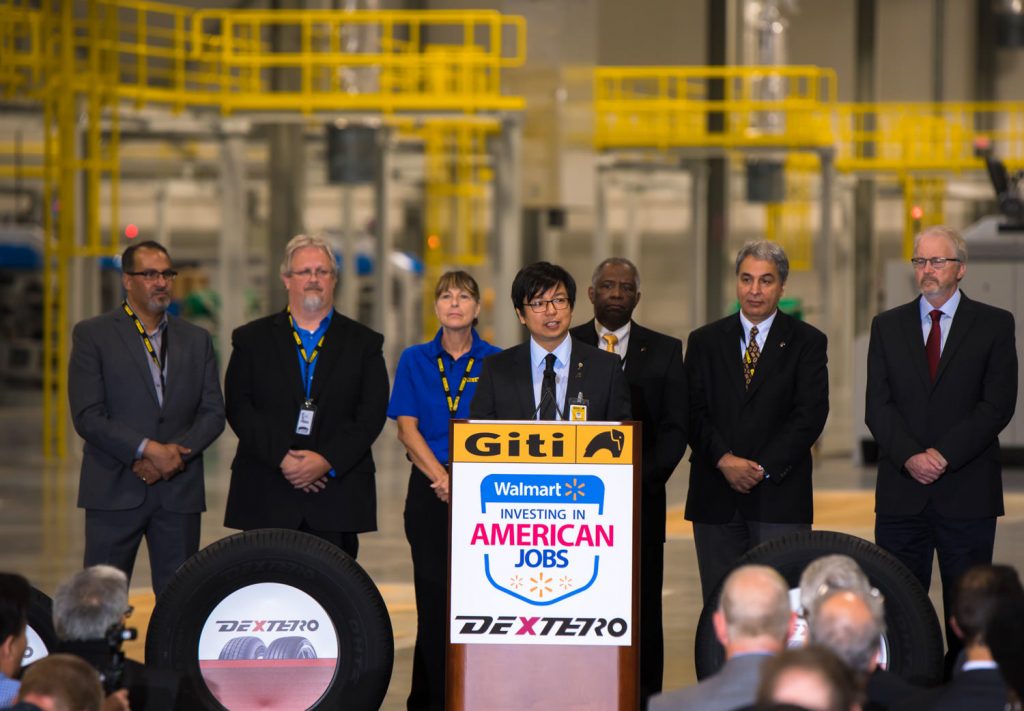
Nearly 800 people work at the facility now and 86% of them live in Chester County and the surrounding area near the Richburg campus, which was carefully developed to retain 1,500 of the 1,700 acres of existing surrounding pine and hardwoods forest and meadows.
That’s part of the environmental stability piece, which the company brought with it from South Asia. Giti already supports more than a million acres of rain forest in Malaysia and the South Pacific as a longtime supporter of Conservation International.
The business and community sustainability pieces, meanwhile, are part and parcel to the company’s commitment to providing good jobs and economic stability in the I-77 Corridor, helping seal the area’s recovery from the collapse of the domestic textile industry in the not-too-distant past.
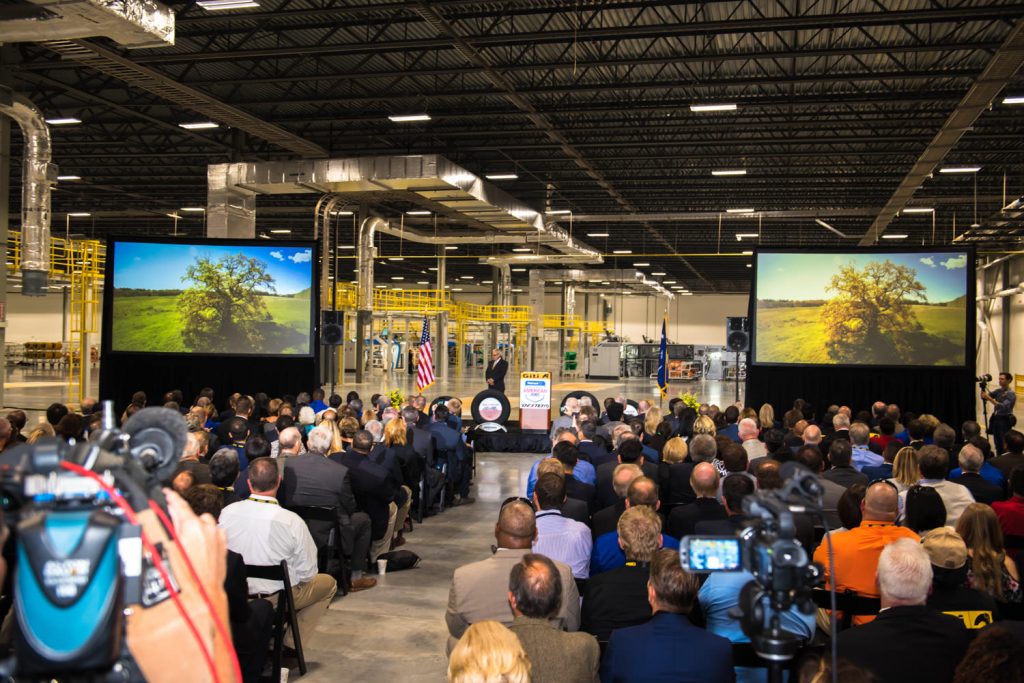
As David Shelton, Giti’s director of industry relations, sums it up: “We are actively participating with leaders on every level of government and other stakeholders to work together for the growth and prosperity of this region while protecting its environment, sustaining its culture and building its education and communities.”
High Tech and High Touch
The Giti plant is part of a global family of eight manufacturing facilities that use leading-edge technologies and processes to produce passenger and light-truck tires for the original equipment and replacement markets.
Automation plays a huge role at Giti, eliminating as much as possible any direct human intervention through the entire process until the finished products are inspected by hand. However, that does not mean humans aren’t involved in every step.
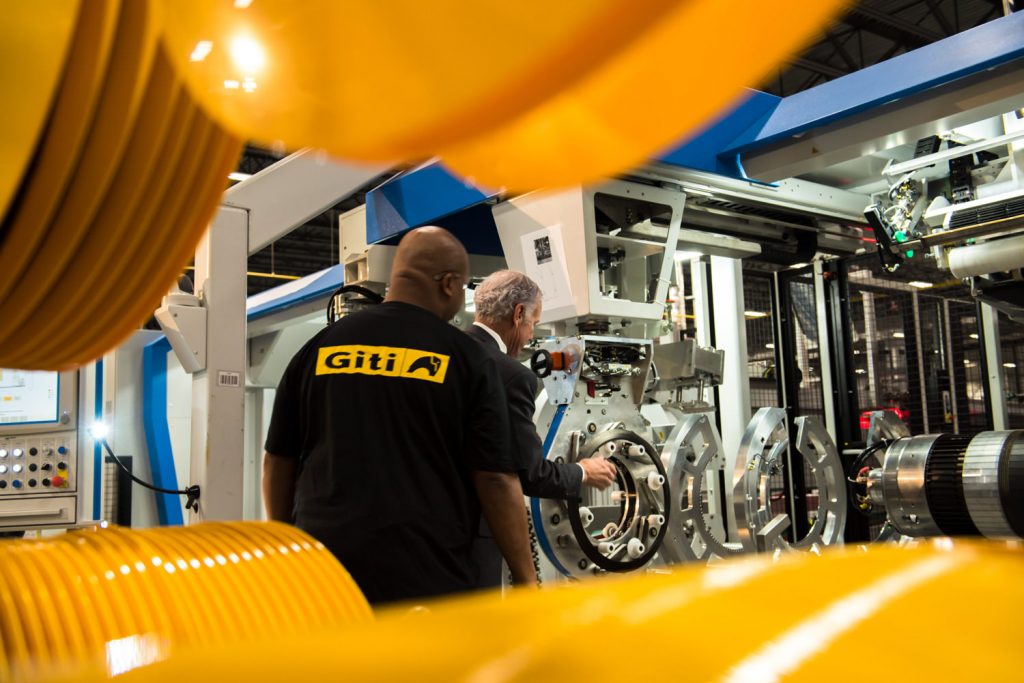
“Automation is not about doing away with jobs,” Shelton says. “Automation replaces the tedious jobs and creates a more amicable place to work, a workplace that places a priority on skills and thinking. The demand for people to work there is still there, but the work is different.”
Giti currently uses job fairs, third-party recruiters, online efforts, and visits to educational institutions to find the people needed to produce the high-quality, highly engineered products on which millions of drivers and passengers rely for their safety.
Once hired, the staff is responsible for a multi-step process that takes raw materials through material processing, assembly of components, curing and post-production validation to ensure regulatory and industry standards and consumer expectations are met or exceeded.
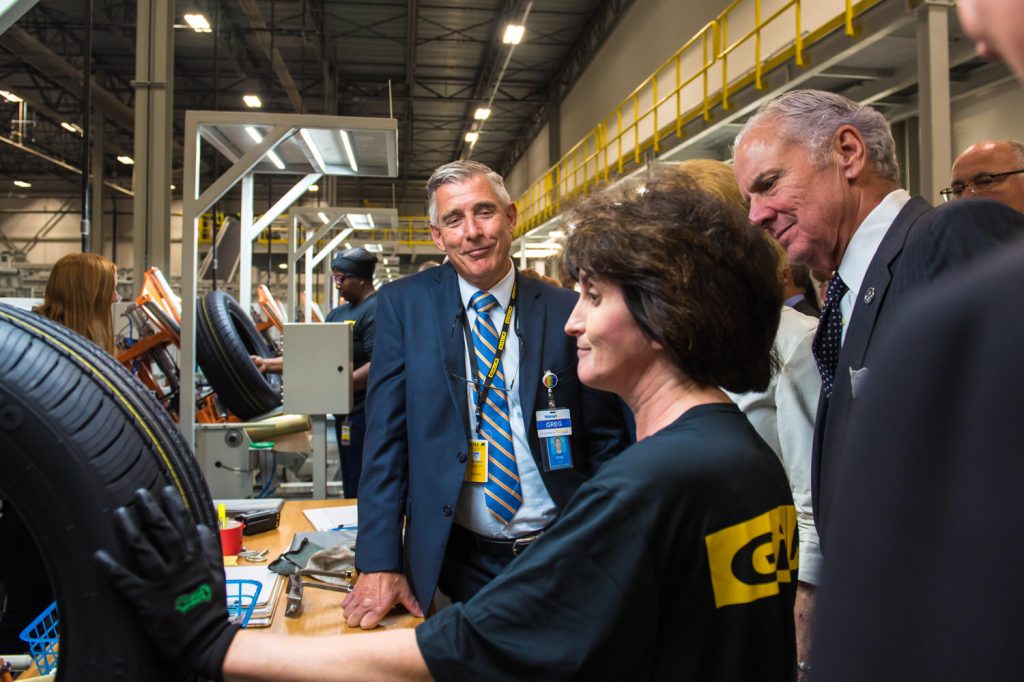
“We’re not 100 percent automated, but we’re pretty close,” Shelton says.
Such manufacturing rigor requires a workforce with a range of skills. About 25% of Giti employees in Chester are office and support staff, with technical college or more advanced degrees in diverse areas of maintenance and engineering. The rest are in production, with similar expectations of professionalism and proficiency.
The Education Imperative
That means training and education are imperatives for the plant and for the community that supports it and vice versa. Along with locating and attracting people who already have those skills and education and want to work in a state-of-the-art global manufacturing facility, the company is working with local schools to grow their own.
For new employees, that means on-the-job training to provide the exact skills needed to operate each piece of very expensive, very advanced machinery. “No one touches much less operates any machine here without education and a qualification process,” Shelton says.
For future employees, that means company participation in local STEAM education, including sponsoring math and science awards competitions at Chester schools.
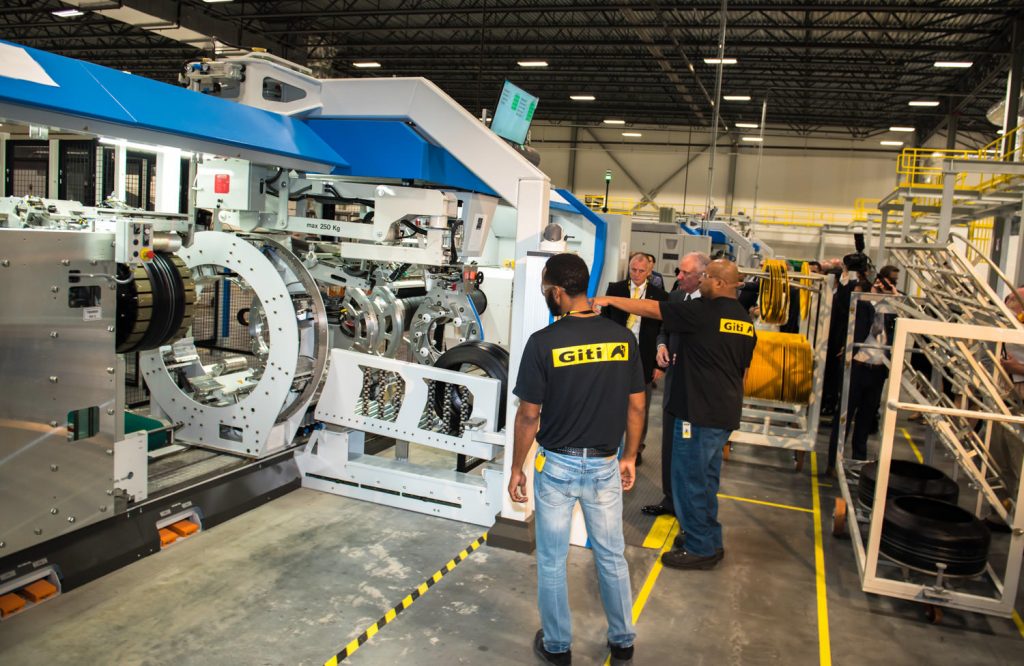
“You build in a location that has an educated, reliable workforce, you create the workforce in that location, or you bring that workforce in,” Shelton says. “We’re doing all three.”
In the process, the company is putting down roots in Chester County that promise to sustain the plant and the community for years to come. Those roots spread, too. The company already generates approximately 5,000 direct and indirect jobs, and it plans to add several hundred jobs of its own as its business grows here.
That translates to an estimated economic impact of $1.2 billion a year to Chester County and the I-77 Alliance region, and to something more. “Look at our company logo. It includes an elephant,” Shelton says. “They’re known for their strength and intellect and their inclusive, protective family network. That’s what we’re creating here in Chester County and we plan to grow stronger here for generations to come.”

